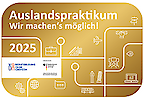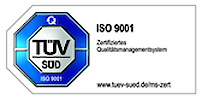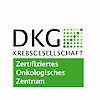A story of success from Bonn
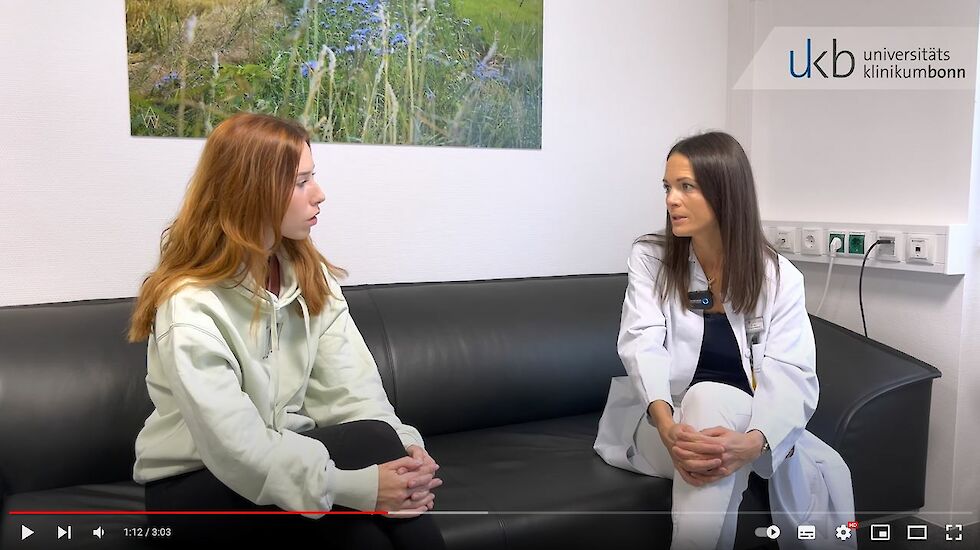 Germany’s first radioiodine therapy has been performed in 1948 by Professor Cuno Winkler, who established the routine use of radioiodine in our university hospital in 1951. Since then, thousands of patients have been treated successfully in our institution. From 1986, his successor Professor Hans-Jürgen Biersack and from 2013, Professor Markus Essler continued the tradition. The experience gained from these decades shows that radioiodine therapy is one of the most effective kinds of therapy medicine has to offer. Benign thyroid diseases such as autonomous nodules and grave’s disease, and even malignant tumours of the thyroid can be cured without serious side effects.
Germany’s first radioiodine therapy has been performed in 1948 by Professor Cuno Winkler, who established the routine use of radioiodine in our university hospital in 1951. Since then, thousands of patients have been treated successfully in our institution. From 1986, his successor Professor Hans-Jürgen Biersack and from 2013, Professor Markus Essler continued the tradition. The experience gained from these decades shows that radioiodine therapy is one of the most effective kinds of therapy medicine has to offer. Benign thyroid diseases such as autonomous nodules and grave’s disease, and even malignant tumours of the thyroid can be cured without serious side effects.
How does radioiodine therapy work?
Thyroid cells and thyroid cancer cells accumulate iodine. If radioactive iodine (iodine-131) is provided to these cells, it also accumulates in the thyroid tissue and the cells are eradicated by irradiation. As the beta-radiation of iodine-131 only has a very short range in human tissue (about 1 mm), the surrounding healthy tissue is spared from the effects of the radiation.
What are possible side effects of radioiodine therapy?
Potential side effects of radioiodine therapy are usually very mild, if they should occur at all. A temporary swelling in the neck region where the thyroid is located may occur, as well as mild nausea. Late side effects are not to be expected when treating autonomous nodules or grave’s disease.
How long do patients have to stay on the therapy ward?
This depends on the size of the thyroid gland and the type of thyroid disease. Usually, patients have to stay on the ward for 2-4 days. Each bed is equipped with a personal flat screen TV. Of course, patients can also bring their own tablets, laptops and books for personal entertainment. Single rooms are also available. Unfortunately, it is not possible to receive visitors on the ward due to radiation safety regulations.
Which patients benefit from radioiodine therapy?
The indications for radioiodine therapy are:
Autonomous nodules “hot nodules” of the thyroid
Radioiodine therapy will only eradicate the autonomous nodule. The surrounding healthy thyroid tissue will be spared from therapeutically active radiation doses. In most cases, patients do not need to take any thyroid medication after radioiodine therapy for hot nodules has been performed.
Grave’s disease
The aim of radioiodine therapy in grave’s disease is to eradicate all thyroid tissue, similar to surgical removal of the thyroid, however without scarring or other risks of surgery (e.g. injury of the vocal cord nerves or the risks of general anaesthesia). Similar to surgery, regular intake of thyroid hormone tablets will be necessary after radioiodine therapy for grave’s disease.
Nodular goiter (volume reduction)
Radioiodine therapy can be used to reduce the volume of a large nodular goiter. This can alleviate local symptoms and mostly elderly patients will benefit from this therapy.
Ablation of thyroid remnant tissue after surgery for thyroid cancer
The thyroid gland needs to be completely removed by surgery in patients with thyroid cancer. After surgery, in most cases radioiodine therapy is performed to eradicate tiny amounts of remnant thyroid tissue and possible micrometastases. This kind of radioiodine therapy is usually performed about 4 weeks after surgery.
Therapy of metastases of thyroid cancer
Radioiodine therapy is also used in cases of metastases of differentiated thyroid cancer.
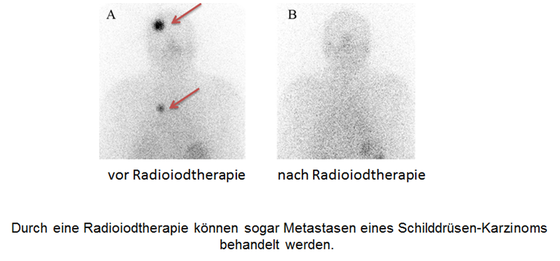
How can I get an appointment for radioiodine therapy?
An appointment in our clinic for radioiodine therapy can be arranged via your general practitioner, surgeon, internal medicine specialist, endocrinologist or nuclear medicine specialist. You can also make an appointment in our thyroid outpatient clinic to consult us directly if radioiodine therapy is the right choice for you.
Therapy of benign thyroid disease
Therapy secretary office / enquiries
Mrs. Oregan Vautey
Tel: +49 (0)228 287 16171
Email:
Therapy of malignant thyroid disease
Therapy Ward
Tel: +49 (0)228 287 16855
Fax: +49 (0)228 287 19107









